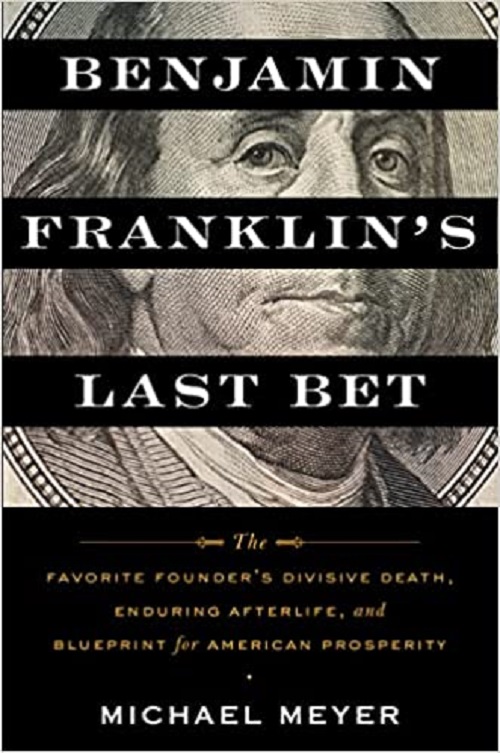Benjamin Franklin’s Last Bet: The Favorite Founder’s Divisive Death, Enduring Afterlife, and Blueprint for American Prosperity

MHS Event
Michael Meyer
This event will now be held virtually from 6:00-7:00. Register to attend below.
Virtual, $5 fee.
Benjamin Franklin was not a gambling man, however, at the end of his life he allowed himself a wager on the survival of the United States: a gift of two thousand pounds to Boston and Philadelphia, to be lent out to tradesmen over the next two centuries to jump‑start their careers. Benjamin Franklin’s Last Bet traces the evolution of these twin funds as they age alongside America itself, bankrolling woodworkers to space races. Franklin’s stake in the “leather-apron” class remains in play to this day and offers an inspiring blueprint for our modern era.
Online Event
This event will now be held virtually from 6:00-7:00. Contact programs@masshist.org if you have any questions. Registrants will receive a confirmation message with attendance information.
